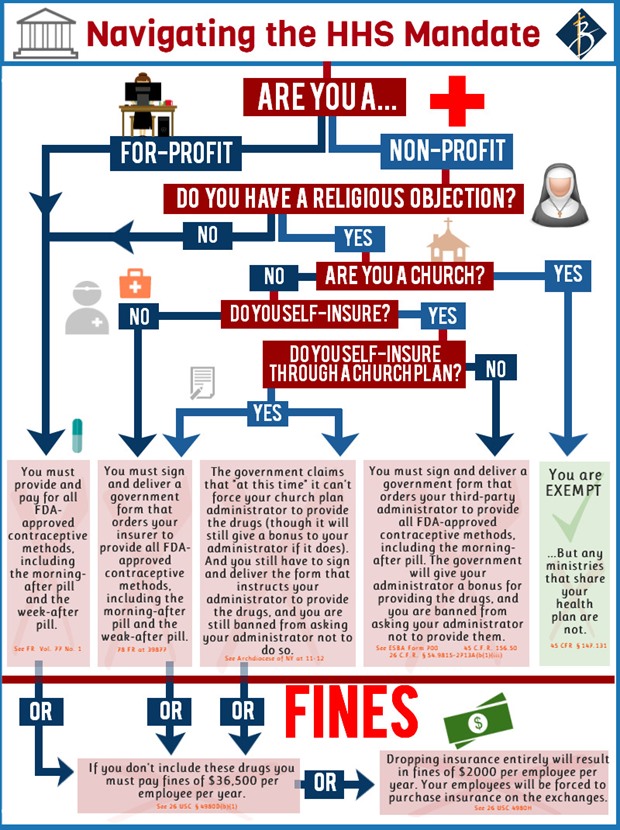
Contraceptives case heard before the Supreme Court
The U.S. Supreme Court yesterday heard the long awaited case spearheaded by Hobby Lobby regarding whether for-profit companies may refuse to include contraception coverage as mandated by Obamacare, due to religious objections. It appears that the justices were split by gender, with male justices expressing skepticism and female justices supporting the contraception mandate.
After hearing the arguments, the justices will make a decision and write an opinion, with the final ruling expected in June.
![]()
Hobby Lobby objects specifically to the morning-after pills and IUDs, which they argue constitute abortion, and at the early onset of the company’s lawyer’s arguments before the Court, Justice Sonia Sotomayor asked, “What about employers who have religious objections to health plans that cover other basic medical procedures — blood transfusions, immunizations, medical products that include pork?”
The lawyer asserted that each would have to be evaluated by the courts – in other words, that is not in argument before the Court in this case.
Endless questions of “what if?”
Along the same lines, Justice Elena Kagan noted that an employer might have a religious objection to complying with sex discrimination laws, minimum wage laws, family leave laws, as well as child labor laws – what then?
Sotomayor noted that the Court has consistently resisted “measuring the depth of someone’s religious beliefs,” and added that the issue is convoluted – whose religious rights are being exercised? The business owners’? The corporate officers’? The shareholders’?
Kagan stated that Obamacare is a choice and that Hobby Lobby owners could simply pay the per-employee fine. By choice.
“I thought part of the religious commitment of the employers was to provide health insurance,” opined Chief Justice John Roberts, which Hobby Lobby’s lawyer agreed with.
Questions before the Solicitor General
Justice Anthony Kennedy said that the government sees this case as the employer putting its employees in a disadvantaged position, and asked if the employer’s religious beliefs just trump those of the employees? He told U.S. Solicitor General, Donald Verrilli, “Under your view, a for-profit corporation could be forced, in principle … to pay for abortions.”
Verrilli said there is no law requiring for-profit corporations to provide abortions, to which Roberts quickly asked, “Isn’t that what we are talking about? They have to pay for methods of contraception that they believe provide abortions.”
Verrilli noted that the methods in question are approved by the FDA, and under federal laws are not considered abortion.
Justice Ruth Bader Ginsburg pointed out that although this case is focused solely on morning-after pills and IUDs, another employer may object to all contraceptives based on a decision in favor of Hobby Lobby, again, convoluting the issue.
Breyer asks if it couldn’t become a win-win
Justice Stephen Breyer simply asked if there is an alternative in the form of providing contraception coverage for Hobby Lobby employees that doesn’t violate owners’ religious rights, namely, having the government pay for the coverage.
Justice Antonin Scalia immediately added that these contraceptives aren’t exactly expensive.
Verrilli claimed that IUDs are the most effective method of contraception and cost between $500 and $1,000, and that even if the government agreed to pay, corporations signing forms attesting to their objections would make them “complicit,” which is exactly what many are already arguing.
What every company must know
First and foremost, depending on the size of your company, whether or not you must cover the cost of contraceptives will soon be determined, and fines may be associated with a lack of compliance.
Below is how the mandate currently works, an although it is being challenged, you should be aware of what is required of your company or your employer:

For full details, the Wall Street Journal did an amazing job of live blogging the entire hearing.
Marti Trewe reports on business and technology news, chasing his passion for helping entrepreneurs and small businesses to stay well informed in the fast paced 140-character world. Marti rarely sleeps and thrives on reader news tips, especially about startups and big moves in leadership.







































